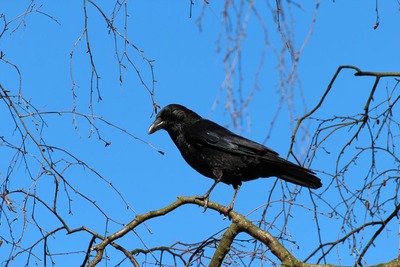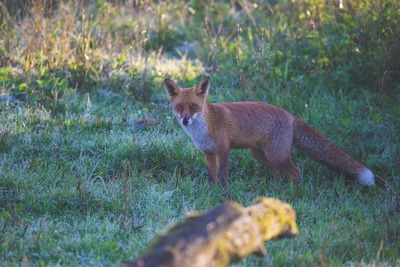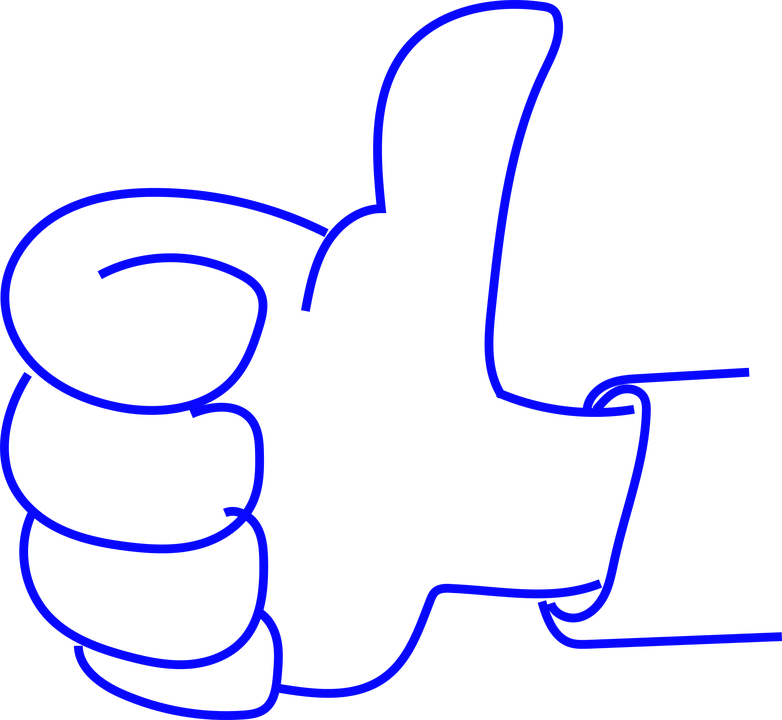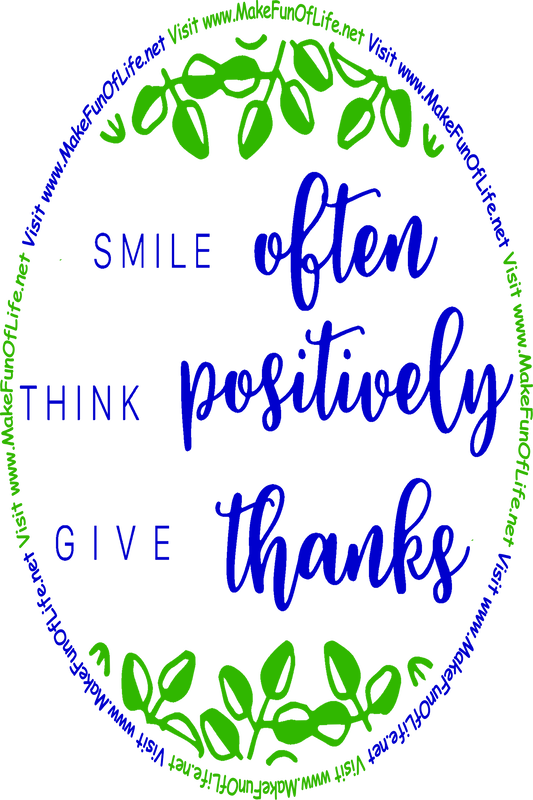The Fox and the Crow
A Fox once saw a Crow fly off with a piece of cheese in its beak and settle on a branch of a tree. “That’s for me, as I am a Fox,” said Master Reynard, and he walked up to the foot of the tree. “Good-day, Mistress Crow,” he cried. “How well you are looking to-day: how glossy your feathers; how bright your eye. I feel sure your voice must surpass that of other birds, just as your figure does; let me hear but one song from you that I may greet you as the Queen of Birds.” The Crow lifted up her head and began to caw her best, but the moment she opened her mouth the piece of cheese fell to the ground, only to be snapped up by Master Fox. “That will do,” said he. “That was all I wanted. In exchange for your cheese I will give you a piece of advice for the future.
Moral, or lesson, of the story: Do not trust flatterers.
attributed to Aesop
Aesop may or may not have been an actual person. If real, he would have been born in about 620 B.C.E. He would have been a fabulist, or storyteller, and is credited with a number of works known collectively as “Aesop’s Fables.” In some of the stories, animals possess human characteristics, such as the ability to speak or have jobs. Aesop would have passed on at about 56 years of age in about 564 B.C.E.
●○●○●○●○●○●○●○●○●○●○●○●○●○●○●○●○●○●○●○●○●○●○●○●○●○●○●○●○●
A version of the above fable, as a poem, follows.
The Fox and the Crow
The fox and the crow,
In prose, I well know,
Many good little girls can rehearse:
Perhaps it will tell
Pretty nearly as well,
If we try the same fable in verse.
In a dairy a crow,
Having ventured to go,
Some food for her young ones to seek,
Flew up in the trees,
With a fine piece of cheese,
Which she joyfully held in her beak.
A fox, who lived by,
To the tree saw her fly,
And to share in the prize made a vow;
For having just dined,
He for cheese felt inclined,
So he went and sat under the bough.
She was cunning, he knew,
But so was he too,
And with flattery adapted his plan;
For he knew if she’d speak,
It must fall from her beak,
So, bowing politely, began.
“’Tis a very fine day”
(Not a word did she say):
“The wind, I believe, ma’am, is south:
A fine harvest for peas:”
He then looked at the cheese,
But the crow did not open her mouth.
Sly Reynard, not tired,
Her plumage admired,
“How charming! how brilliant its hue!
The voice must be fine,
Of a bird so divine,
Ah, let me just hear it, pray do.
“Believe me, I long
To hear a sweet song!”
The silly crow foolishly tries:
She scarce gave one squall,
When the cheese she let fall,
And the fox ran away with the prize.
Moral
Ye innocent fair,
Of coxcombs beware,
To flattery never give ear;
Try well each pretense,
And keep to plain sense,
And then you have little to fear.
by Little B. (Taylor?): as published in Hamilton Wright Mabie, Edward Everett Hale, and William Byron Forbush, editors: “Childhood’s Favorites and Fairy Stories: The Young Folks Treasury” (1927)
A Fox once saw a Crow fly off with a piece of cheese in its beak and settle on a branch of a tree. “That’s for me, as I am a Fox,” said Master Reynard, and he walked up to the foot of the tree. “Good-day, Mistress Crow,” he cried. “How well you are looking to-day: how glossy your feathers; how bright your eye. I feel sure your voice must surpass that of other birds, just as your figure does; let me hear but one song from you that I may greet you as the Queen of Birds.” The Crow lifted up her head and began to caw her best, but the moment she opened her mouth the piece of cheese fell to the ground, only to be snapped up by Master Fox. “That will do,” said he. “That was all I wanted. In exchange for your cheese I will give you a piece of advice for the future.
Moral, or lesson, of the story: Do not trust flatterers.
attributed to Aesop
Aesop may or may not have been an actual person. If real, he would have been born in about 620 B.C.E. He would have been a fabulist, or storyteller, and is credited with a number of works known collectively as “Aesop’s Fables.” In some of the stories, animals possess human characteristics, such as the ability to speak or have jobs. Aesop would have passed on at about 56 years of age in about 564 B.C.E.
●○●○●○●○●○●○●○●○●○●○●○●○●○●○●○●○●○●○●○●○●○●○●○●○●○●○●○●○●
A version of the above fable, as a poem, follows.
The Fox and the Crow
The fox and the crow,
In prose, I well know,
Many good little girls can rehearse:
Perhaps it will tell
Pretty nearly as well,
If we try the same fable in verse.
In a dairy a crow,
Having ventured to go,
Some food for her young ones to seek,
Flew up in the trees,
With a fine piece of cheese,
Which she joyfully held in her beak.
A fox, who lived by,
To the tree saw her fly,
And to share in the prize made a vow;
For having just dined,
He for cheese felt inclined,
So he went and sat under the bough.
She was cunning, he knew,
But so was he too,
And with flattery adapted his plan;
For he knew if she’d speak,
It must fall from her beak,
So, bowing politely, began.
“’Tis a very fine day”
(Not a word did she say):
“The wind, I believe, ma’am, is south:
A fine harvest for peas:”
He then looked at the cheese,
But the crow did not open her mouth.
Sly Reynard, not tired,
Her plumage admired,
“How charming! how brilliant its hue!
The voice must be fine,
Of a bird so divine,
Ah, let me just hear it, pray do.
“Believe me, I long
To hear a sweet song!”
The silly crow foolishly tries:
She scarce gave one squall,
When the cheese she let fall,
And the fox ran away with the prize.
Moral
Ye innocent fair,
Of coxcombs beware,
To flattery never give ear;
Try well each pretense,
And keep to plain sense,
And then you have little to fear.
by Little B. (Taylor?): as published in Hamilton Wright Mabie, Edward Everett Hale, and William Byron Forbush, editors: “Childhood’s Favorites and Fairy Stories: The Young Folks Treasury” (1927)






























































































